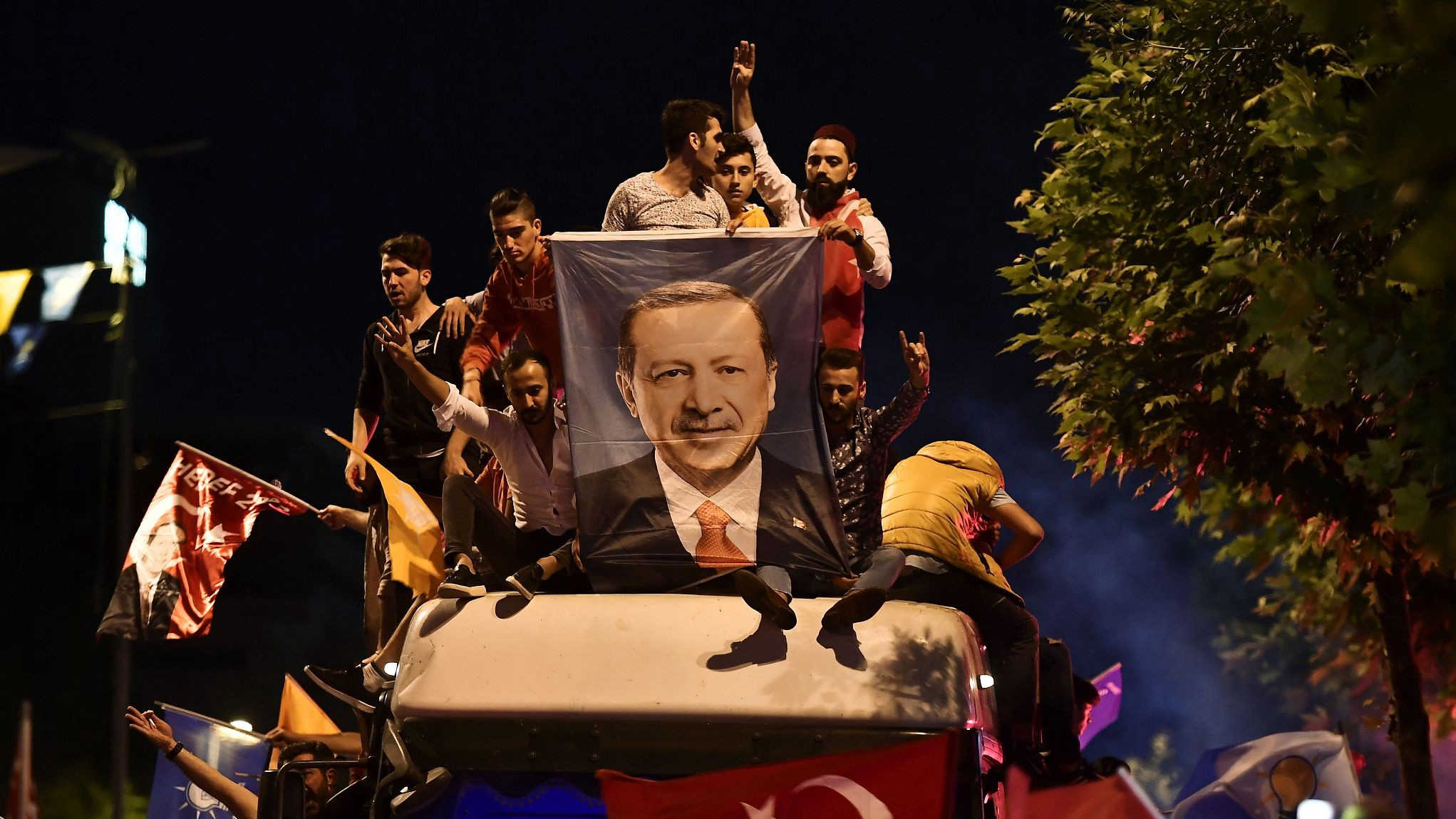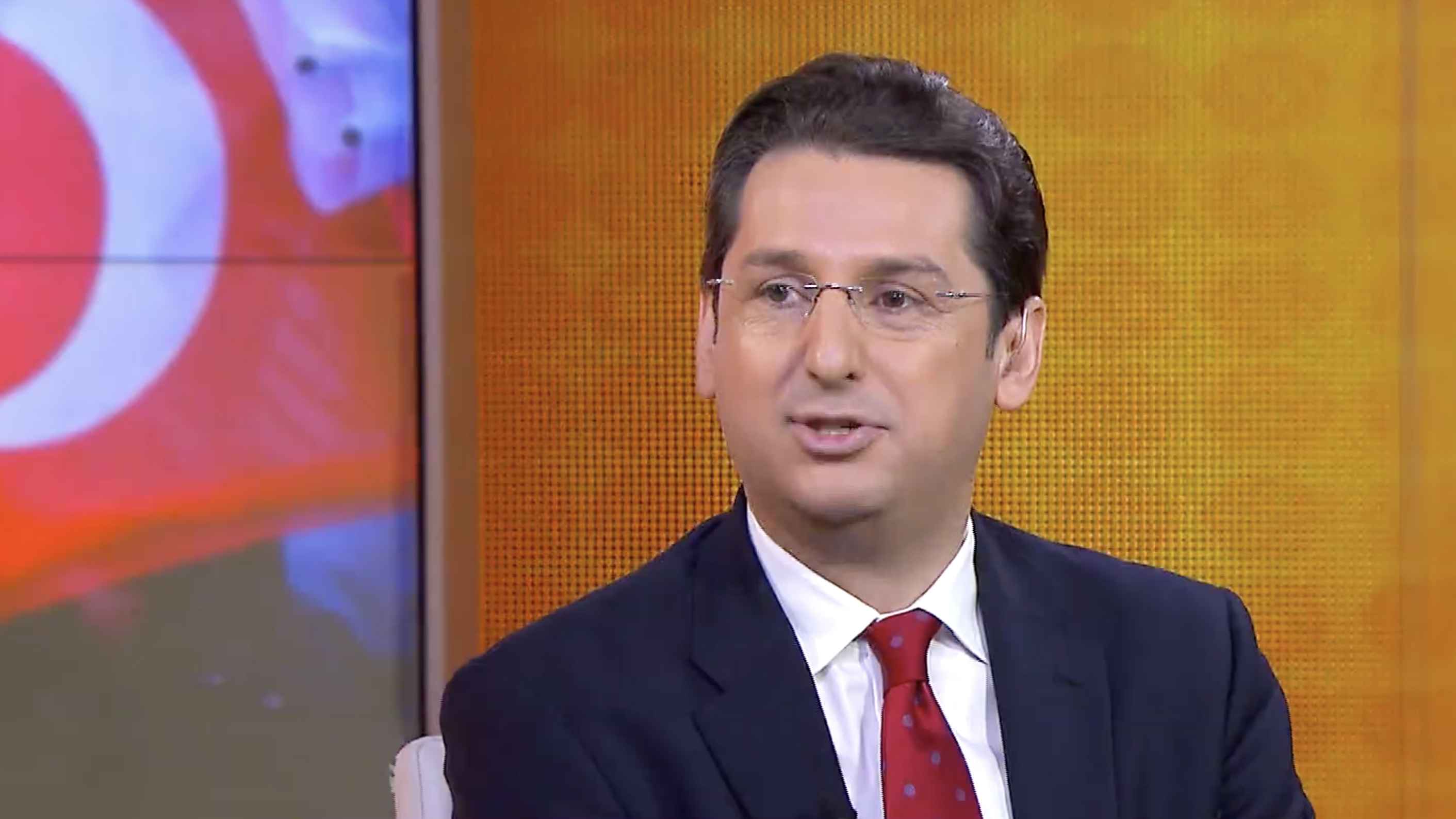
Opinions
11:41, 27-Jun-2018
The Heat: Erdogan will face a series of challenges
Updated
11:33, 30-Jun-2018
CGTN's The Heat

Turkish President Recep Tayyip Erdogan has won a new term in office as Turkey’s leader after a hard-fought, competitive electoral contest, getting about 53 percent of the vote.
The voter turnout was 87 per cent, and there were eight international organizations with 415 observers throughout the election process. President Erdogan said shortly after his victory that the result of this election was a “national will,” and the winner was the country’s democracy.
His speech quickly drew criticism. The president’s main opposition candidate, along with the organization for Security and Co-operation in Europe (OSCE), questioned the fairness of this election, saying that around 90 per cent of Turkey’s media is now under the control of Erdogan and his allies, causing other parties to struggle to make their voices heard during the campaign.
Hakan Camuz, Turkish analyst and international legal consultant, argued that the election should not be disputed at all. He said that similar criticisms also appeared in the past few elections. Rather than criticizing, the opposition parties should really accept the reality and move forward.
01:06

“They keep losing it and they’re blaming everything else but their own failures of coming up with new ideas to show elections in Turkey what they stand for,” Camuz said. “The contribution of Turkish voters to the progress of democracy in Turkey is almost 84 per cent, so nobody disputes the functionality of the democracy.”
Giran Ozcan, US representative for Turkey’s People’s Democrat Party, is one of these raising doubts. He accepted the legitimacy of this election, but also pointed out that having criticisms in how the elections and campaigns were conducted is a completely different issue.
“Observers from all over the world know that there is something going on in Turkey in which the president is just not allowing for the opposition to conduct its own politics freely,” Ozcan said. “If a leader is so popular, then why would he require such tactics to suppress the opposition to such an extent?”
Aykan Erdemir, a former member of the Turkish Parliament, agreed with Ozcan. He said that people are free to vote, but that the election can still be unfair since the playfield itself is uneven, and that is going to haunt Turkey’s democracy.
President Erdogan has dominated Turkish politics for the past 15 years. Now with the re-election, he gains another 5-year term to assume the sweeping powers, which raises concerns about Erdogan’s one-man rule. Ali Cinar, executive president of the Turkish Heritage Foundation, argued that there would be five different parties in the Turkish Parliament, which is a balanced situation. However, Erdemir said that the president will execute both legislative and judicial powers, and the power of the Parliament will be watered down, having little opportunity to check and balance the president’s policies.
Looking forward, the president will face a series of challenges, including the issue of how to deal with the Kurds. Ozcan believed that with President Erdogan in office, an intensification of military efforts is guaranteed, but at the same time, Cinar saw a positive move from the president and his team.
“During the campaign, President Erdogan promised that he’s going to lift this set of emergency, which is a good thing for Turkish democracy,” Cinar said. “With the new systems, with the new reforms, I think it will be much better to have open dialogues with all communities in Turkey. I am very optimistic that there will be more collaboration with other parties and check and balance at the Turkish Parliament.”
The Heat with Anand Naidoo is a 30-minute political talk show on CGTN. It airs weekdays at 7:00 a.m. BJT and 7:00 p.m. Eastern in the United States.

SITEMAP
Copyright © 2018 CGTN. Beijing ICP prepared NO.16065310-3
Copyright © 2018 CGTN. Beijing ICP prepared NO.16065310-3